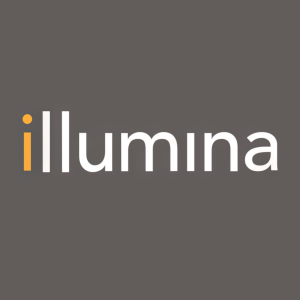Illumina expands collaboration with Janssen to advance molecular residual disease cancer test
In oncology, MRD testing is increasingly being used as a prognostic indicator of disease recurrence after treatment by helping clinicians assess the effectiveness of a patient's current course of clinical intervention and guide their decisions about precision therapy. MRD testing for solid tumors shows promise for improving the standard of care where current disease-monitoring tools fall short in accurately identifying patients' response to treatment.
"This collaboration reflects the value of our unique MRD technology and the promise of Illumina's whole-genome approach in oncology," said Joydeep Goswami, chief strategy and corporate development officer and chief financial officer of Illumina. "Working together with pharma partners like Janssen, we aim to deliver a sensitive, accurate, and easily accessible whole-genome sequencing MRD assay to advance clinical research in oncology."
The Illumina WGS MRD assay, which is currently in development, will detect ctDNA for MRD assessment in research settings that evaluate samples from patients previously diagnosed with cancer across multiple solid tumor indications. In contrast with existing MRD solutions with complex workflows, Illumina plans to develop a research solution that will provide a cost-effective, highly sensitive, and automated workflow, with the potential to achieve a turnaround time of five to seven days.
Illumina intends to collaborate with other leaders in pharma to help further develop and expand the utility of its WGS MRD assay.
Use of forward-looking statements
This article may contain forward-looking statements that involve risks and uncertainties. Among the important factors to which our business is subject that could cause actual results to differ materially from those in any forward-looking statements are challenges inherent in developing, manufacturing, and launching new products and services, and our ability to successfully partner with other companies and organizations to develop new products, expand markets, and grow our business, together with other factors detailed in our filings with the Securities and Exchange Commission, including our most recent filings on Forms 10-K and 10-Q, or in information disclosed in public conference calls, the date and time of which are released beforehand. We undertake no obligation, and do not intend, to update these forward-looking statements, to review or confirm analysts' expectations, or to provide interim reports or updates on the progress of the current quarter.
About Illumina
Illumina is improving human health by unlocking the power of the genome. Our focus on innovation has established us as a global leader in DNA sequencing and array-based technologies, serving customers in the research, clinical, and applied markets. Our products are used for applications in the life sciences, oncology, reproductive health, agriculture, and other emerging segments. To learn more, visit illumina.com and connect with us on X (Twitter), Facebook, LinkedIn, Instagram, TikTok, and YouTube.
Contacts
Investors:
Salli Schwartz
858-291-6421
IR@illumina.com
Media:
David McAlpine
347-327-1336
PR@illumina.com
![]() View original content to download multimedia:https://www.prnewswire.com/news-releases/illumina-expands-collaboration-with-janssen-to-advance-molecular-residual-disease-cancer-test-302026993.html
View original content to download multimedia:https://www.prnewswire.com/news-releases/illumina-expands-collaboration-with-janssen-to-advance-molecular-residual-disease-cancer-test-302026993.html
SOURCE Illumina, Inc.









